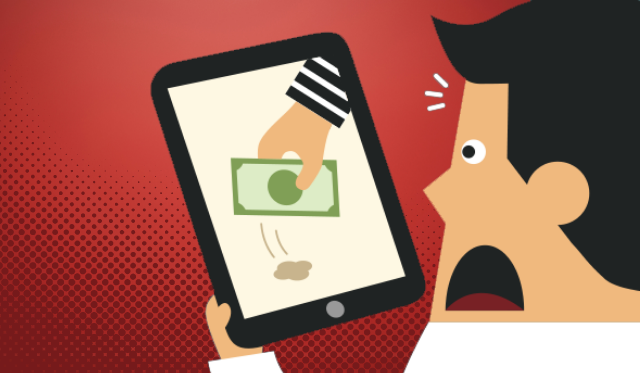Banking with your mobile device is quick and convenient. But is it a safe way to handle your finances?
Every day, millions of people use their smartphones to check their account balances, deposit checks and transfer money. Mobile banking has quickly become a preferred banking tool for many, largely due to its powerful and convenient way of letting account holders control their funds from the palm of their hands.
But like most web-based activities, mobile banking comes with inherent risk. By becoming aware about these risks and learning how to defend against them, you can protect yourself from becoming a victim of fraud and use mobile banking with confidence.
What are the risks of mobile banking?
According to data science company Feedzai, online banking accounted for 93% of all fraud attempts at the beginning of 2021. With 86.5% of Americans now using their mobile devices for banking, the FBI warns that cyber actors are scamming banking customers using a variety of new scam techniques.
App-based banking trojans
Fraudsters are concealing malware in seemingly normal gaming and utility apps. Once the user launches their legitimate banking app, it triggers the trojan on their device to create a false version of the bank's login page and overlays it on top of the legitimate app. Once the user enters their credentials into the false login page, the trojan sends the user back to the real banking app login page.
Fake banking apps
The FBI has found cases of scammers designing fraudulent apps designed that look identical to their actual banking app. These apps provide an error message after the attempted login and will use smartphone permission requests to obtain and bypass security codes texted to users. US security research organizations report that in 2018, nearly 65,000 fake apps were detected on major app stores, making this one of the fastest growing sectors of smartphone-based fraud.
How to protect yourself from mobile banking scams.
Scary stuff, right?
Take a breath.
It's not as ominous as it sounds.
Online security is a top priority for financial institutions, who invest hundreds of millions of dollars into cybersecurity to protect your accounts. Banks and credit unions have systems in place to keep your money safe — but it's up to you to practice safe habits to keep your information secure.
Treat your cell phone like your wallet or purse.
Your purse has a lot of important and personal items in it, which is why you probably wouldn't leave it unattended in your car or a coffee shop. Since your mobile devices carry the same amount of, if not MORE, sensitive data, you should treat them with equal protectiveness.
Always lock your phone after using it, log out of the mobile banking app when you’re done and always keep it in a safe place. For added security, consider installing an antivirus app on your phone, as well as a location-tracking app so you can find your device if it ever gets lost.
Avoid banking on public Wi-Fi.
In an increasingly remote world, Wi-Fi makes it easy to conquer your to-do list from the comfort of a coffee shop, library, hotel, or practically anywhere with a signal. As convenient as public Wi-Fi is, it can pose major security threats to your bank account if you're not safe. When you connect an unsecure laptop or smart phone to a shared network, you may be creating an avenue for hackers to intercept sensitive data stored on your device, such as passwords and credit or debit card numbers.
The safest route is to avoid banking on public Wi-Fi altogether. But if you have to, it’s important to use a virtual private network (VPN). A VPN lets you work within a secure network, even when you’re using public Wi-Fi. It's an effective way to protect your data from scammers and ensure that your account information is kept private.
Make sure to use multi-factor authentication.
Have you ever logged into an account from a new device and ended up having to do extra stuff like answering personal questions, clicking an email link, or entering a code that was texted to you? If so, you have experienced multi-factor authentication in action. Unlike single-factor authentication, where you just have to enter a password, multi-factor authentication adds extra steps to ensure that it's actually you.
Never share your account information on social media.
Even if you are exchanging private messages with a representative from your bank or credit union, if your conversation is happening on a social media platform like Facebook or Instagram, do not share your account information over chat. Your credit union will never ask for your account number over a third-party app.
Brush up on your knowledge of scams.
Mobile banking is constantly changing, making it difficult to identify all possible risks. Staying in the know about trending scams can help you protect yourself and utilize mobile banking with confidence.
Sign up for alerts.
Security alerts can help you stay vigilant of suspicious activity on your account. Apps like MyCardRules™ can help you quickly identify when your card is being misused and allows you to take action to stop potential thieves from draining your account.
The verdict
Is it safe to use mobile banking apps?
All things considered: Yes.
Most victims of mobile banking breaches are those who don't take their security seriously. As long as you use common sense, mobile banking is a secure, convenient way to handle your finances.


